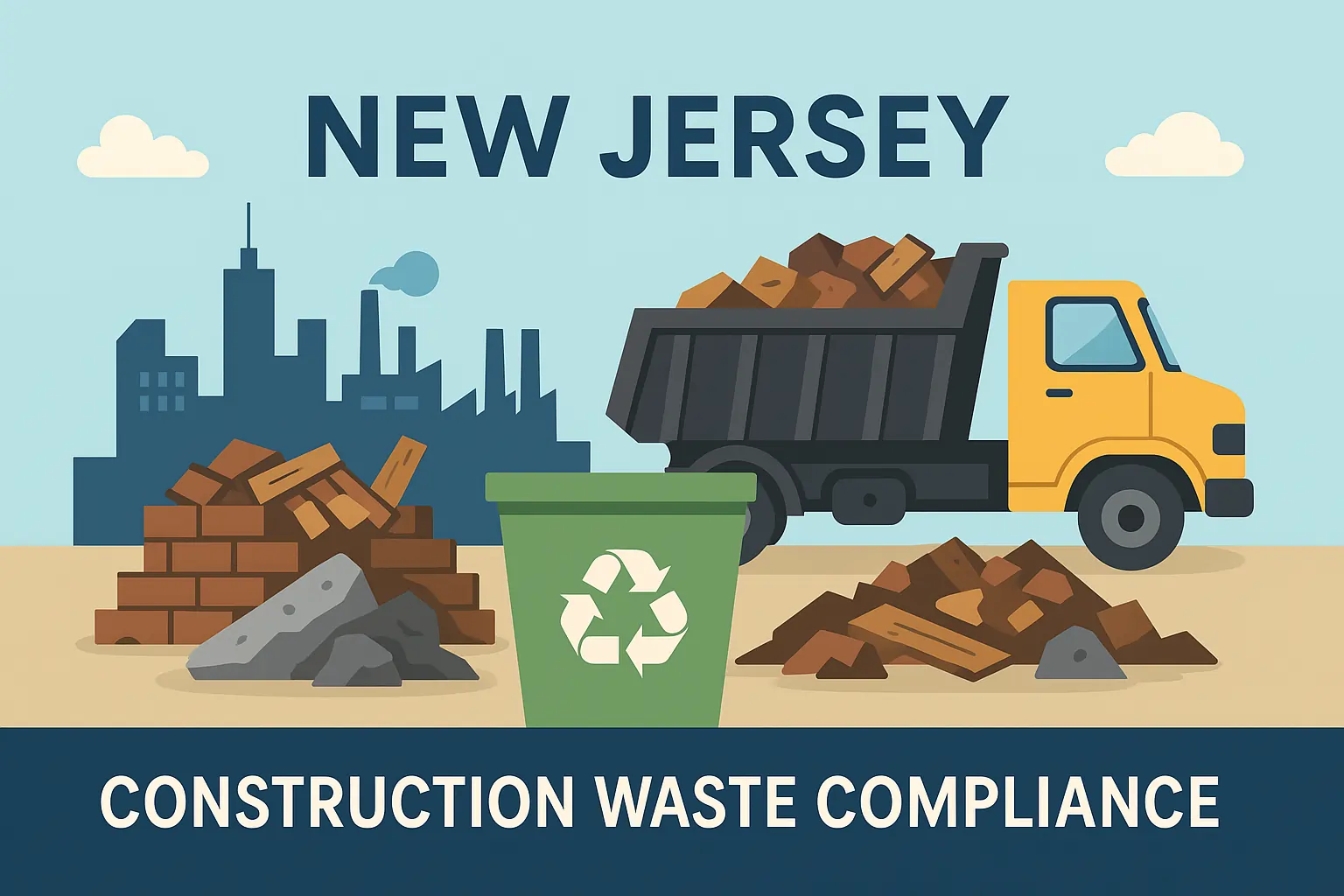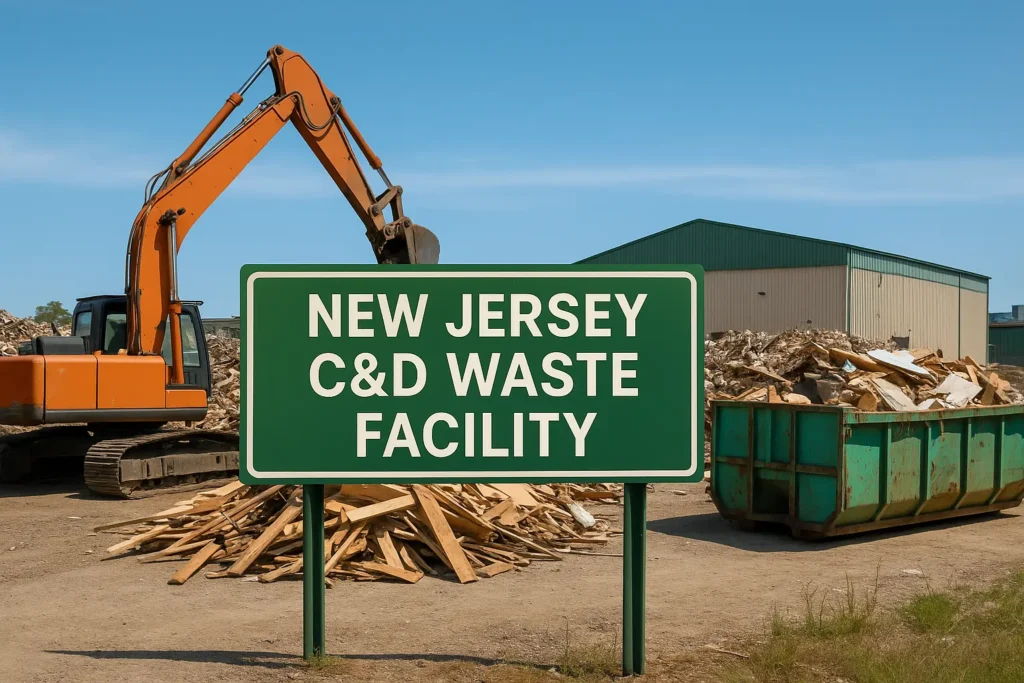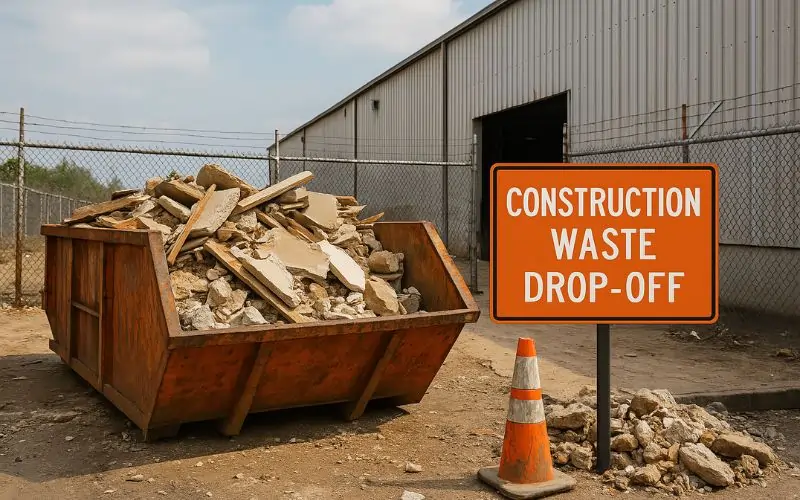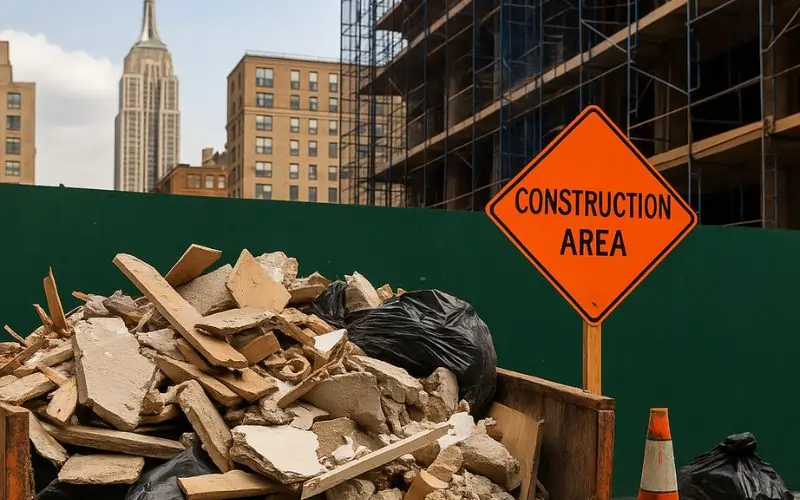Avoid costly penalties and stay compliant. Learn how to handle construction and demolition waste in New Jersey, including recycling rules, approved facilities, and site management strategies.
Introduction: Don’t Let Construction Waste Jeopardize Your Jobsite
Construction and demolition waste in New Jersey is more than a byproduct of the build—it’s a compliance risk. Between solid waste laws, recycling mandates, and hauler licensing requirements, managing waste the wrong way can derail any construction project.
This guide outlines how to handle construction debris legally, efficiently, and with full documentation.
Whether you’re clearing out renovation projects in Jersey City, managing demolition debris in Newark, or placing roll off dumpsters in Paterson, you need to know the laws and logistics before the job begins.
Who Regulates Construction and Demolition Waste in NJ?
You are governed by both state and local regulations:
NJ Department of Environmental Protection (NJDEP)
Oversees solid waste, hazardous waste, and recycling programs across the state.
County Utilities Authorities
Enforce local waste diversion and debris disposal laws. Each county has its own plan and approved facilities.
Municipal Building Departments
May impose job-specific rules related to debris, roll off container placement, and site waste management.
Reference: NJDEP Solid Waste Management Rules
What Is Considered Construction and Demolition Debris in New Jersey?
The NJDEP defines construction and demolition waste to include:
- Concrete, wood, drywall, bricks, glass, tile
- Metals: steel, copper piping, rebar
- Asphalt and asphalt shingles
- Doors, windows, cabinetry, plumbing fixtures, toilets, sinks
- Packaging materials: plastic wrap, foam, pallets
- Recovered materials from old buildings and structures
Hazardous waste items such as paint, adhesives, treated wood, or asbestos require special handling and may not be dumped with general debris.
Common Violations That Cost Contractors Thousands
- Using an unregistered roll off hauler
- Mixing recyclable and non-recyclable materials
- Dumping demolition debris at unauthorized landfills or transfer stations
- Failing to submit waste manifests or tonnage reports
Even if you subcontract waste handling, you are responsible as the GC or construction manager.If something goes wrong, enforcement will follow your permits, manifests, and disposal receipts.
Recycling Requirements and Waste Diversion Targets
New Jersey mandates strict waste management practices for construction projects:
- Concrete, asphalt, metal, and wood must be diverted from landfills and sent to approved recycling facilities
- Dirt and rock (often reused as soil amendment) must be documented when reused or transferred
- Large-scale projects may require county-approved waste diversion plans and tracking of demolition waste generated
- On public or state-funded jobs, contractors must report waste generated, tonnage, and percentage of recycled materials
Start here: NJ Solid Waste Coordinators by County
Hazardous and Special Handling Waste
The following require strict compliance:
- Lead paint, asbestos, fuel-contaminated wood
- Adhesives, sealants, insulation with restricted chemicals
- Treated lumber, electronics, batteries, and solvents
These types of waste must be handled by certified hazardous waste haulers and disposed of according to NJDEP protocols.
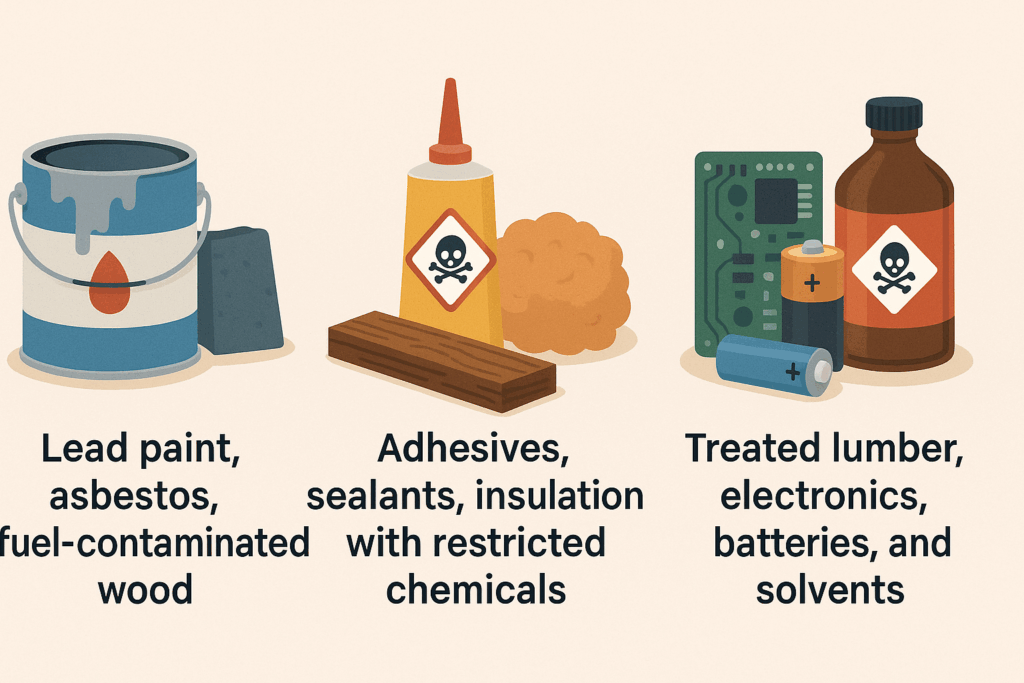
Proper Disposal Process for Job Sites
- Assess Waste Streams Early – Classify materials for separation and disposal
- Choose Licensed Haulers – Ensure every hauler handling construction debris is registered
- Use Authorized Disposal Facilities – Only approved landfills and recycling facilities are legal endpoints
- Document Everything – Keep licenses, manifests, weigh tickets, and facility receipts organized
Post your waste plan on-site to guide subcontractors and ensure regulatory visibility.
Reusing Materials and Sustainable Management
Contractors can reduce disposal volume and cost by:
- Reusing materials such as lumber, trim, fixtures, and appliances
- Donating clean, intact furniture and cabinetry from renovation projects
- Salvaging valuable commodities like metal, hardwood, and stone
These practices support LEED points, generate less waste, and reduce tipping fees.
Required Documentation for Your Construction Project
Licensed hauler credentials
Proof that your waste transporter is registered with the NJDEP and authorized to haul construction debris. This includes their license number and certification date.
Roll off container manifests
These documents detail what was placed in each roll off container, where it was picked up, and where it was delivered. They help demonstrate chain-of-custody and compliance.
Receipts from transfer stations and recycling facilities
These confirm that waste was legally disposed of at an authorized location. Keep all receipts showing type, weight, and destination of materials.
County compliance forms and waste diversion reports
Some counties require documentation showing how much material was diverted from landfills. These forms validate that you’re meeting recycling or diversion targets.
Hazardous waste manifests and certificates of disposal
Legally required for any hazardous materials. These forms show the generator, transporter, and final disposal facility, ensuring full regulatory compliance.
Document retention is critical during final inspections and close-out.
Need Help Managing Final Cleaning and Debris Removal?
We serve Northern and Central NJ with union-ready, fully documented post-construction clean-up and C&D hauling. Visit our New Jersey Post-Construction Cleaning Services page to schedule an estimate.
Don’t let a dumpster mistake ruin your CO date. Know the law, document the work, and use the right hauler.

Commercial Post-construction cleanup
A Higher Grade of Quality for Construction Managers
Contact us for a post-construction cleaning estimate. We will meet you on-site and complete a walk-through for a detailed estimate.
FAQ: Construction Waste Compliance in New Jersey
Worth reading
Construction Waste and Recycling Facilities in New Jersey: Licensed Disposal Services
Find NJDEP-approved construction and demolition waste and recycling facilities. Learn where to legally dispose of…
Construction Waste Drop Off: Where to Dispose of Construction Waste in NYC Borough-by-Borough
Find legal and convenient construction waste disposal sites in Manhattan, Brooklyn, Queens, Bronx, and Staten…
Construction Waste Disposal in NYC Guide – Be Compliant & Avoid Fines
Avoid violations and job site delays. Learn the NYC and NY State construction waste disposal…

